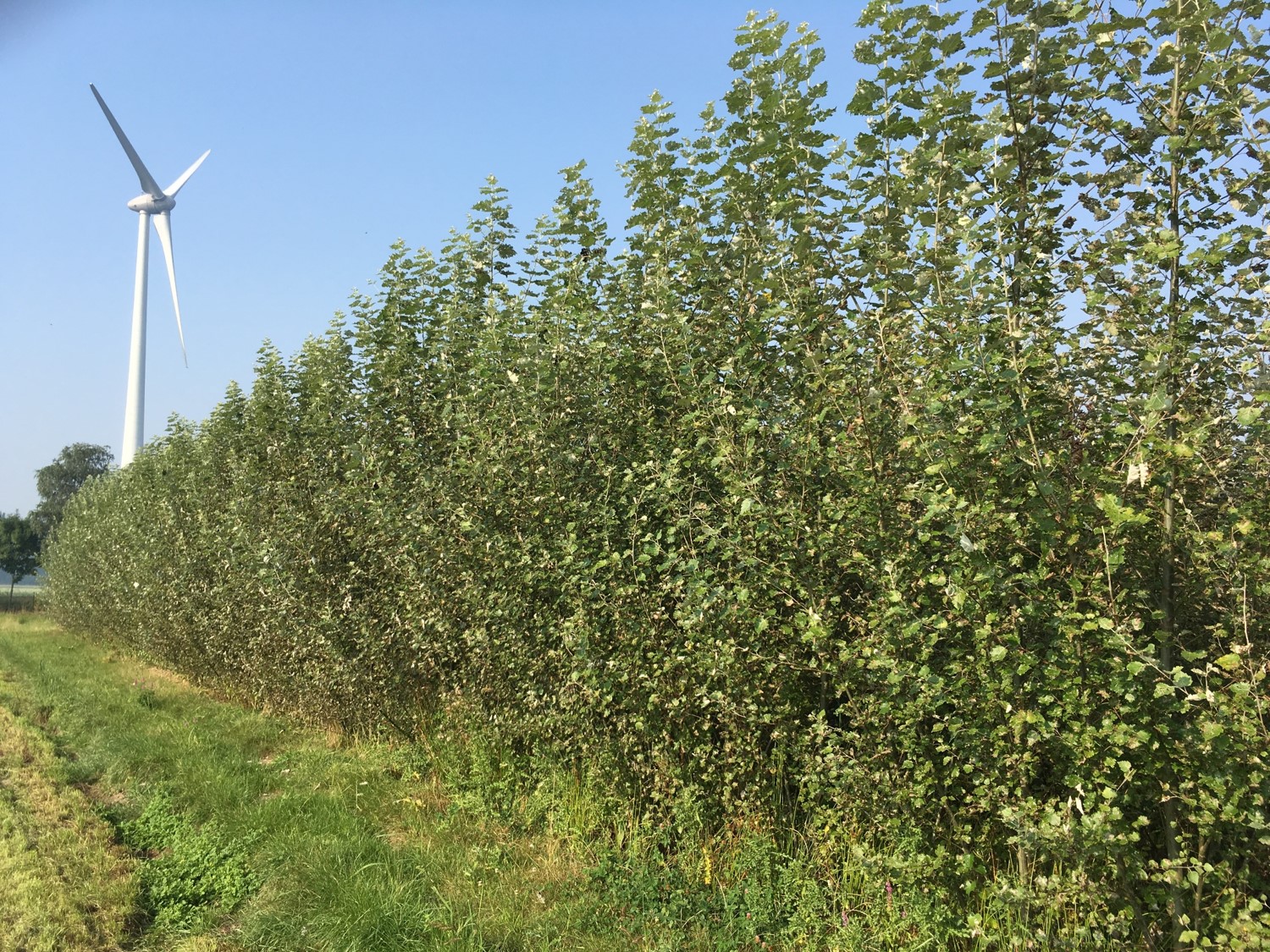A major objective of the group is to demonstrate, in field trials, that the improved biomass processing efficiency of the engineered, greenhouse-grown biomass crops is maintained when plants are grown in the field. This is especially relevant for poplar, as trees are harvested in winter when leaves have been shed and the wood formation program has ended. But also for maize, plants grown in the field are phenotypically very different from those grown in the greenhouse due to the very different environment. A second objective of field trials is to assess the potential negative effects of lignin engineering on yield. Third, field trials allow harvesting enough biomass to test processing efficiencies at semi-industrial scale. Our previous field trial with CCR and CAD downregulated poplar showed that we can significantly improve biomass processing, but not yet to the level that it is useful for the biorefinery (Van Acker et al., 2014; De Meester et al., 2022). In addition, the downregulation was variable and associated with a yield penalty. The objective now is to stably engineer plants with modified lignin, but that do not have a yield penalty, by making use of the CRISPR/Cas9 technology, and to evaluate these plants (poplar/maize) in experimental field trials (De Meester et al., 2022).
One limitation with the use of CRISPR/Cas9 in poplar is that in order to establish field trials, the genome-edited trees should not contain an active CAS9 gene. Given that segregation is no option in trees and a second transformation is cumbersome, we are in the process of establishing a DNA-free gene-editing protocol for poplar (Anders et al. 2023; Hoengenaert et al., 2023).
